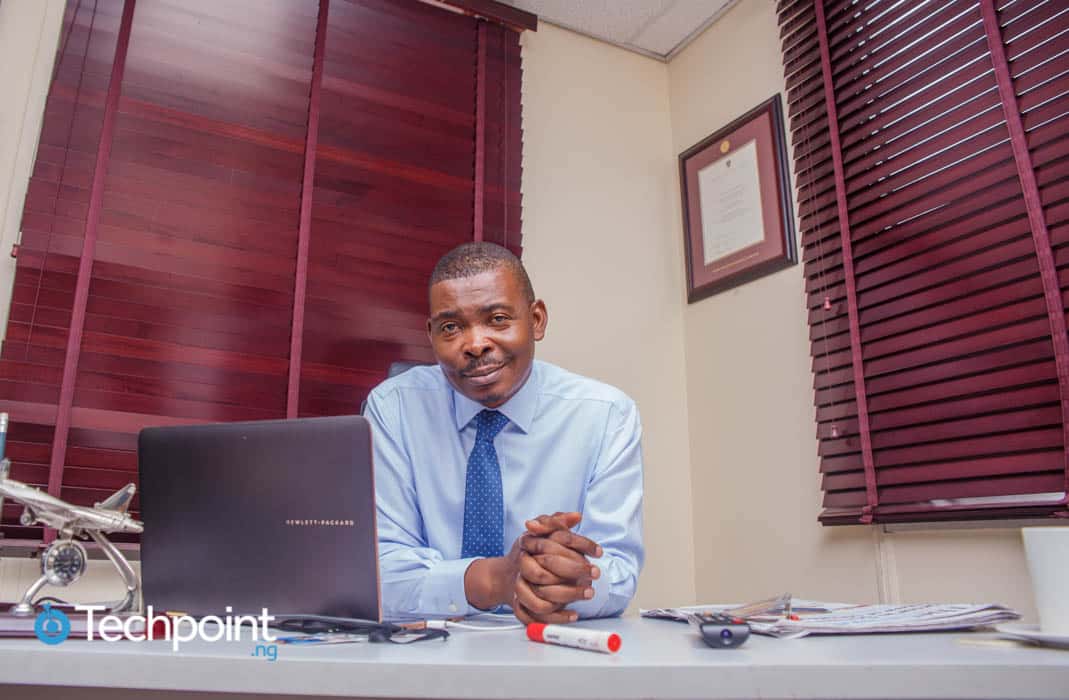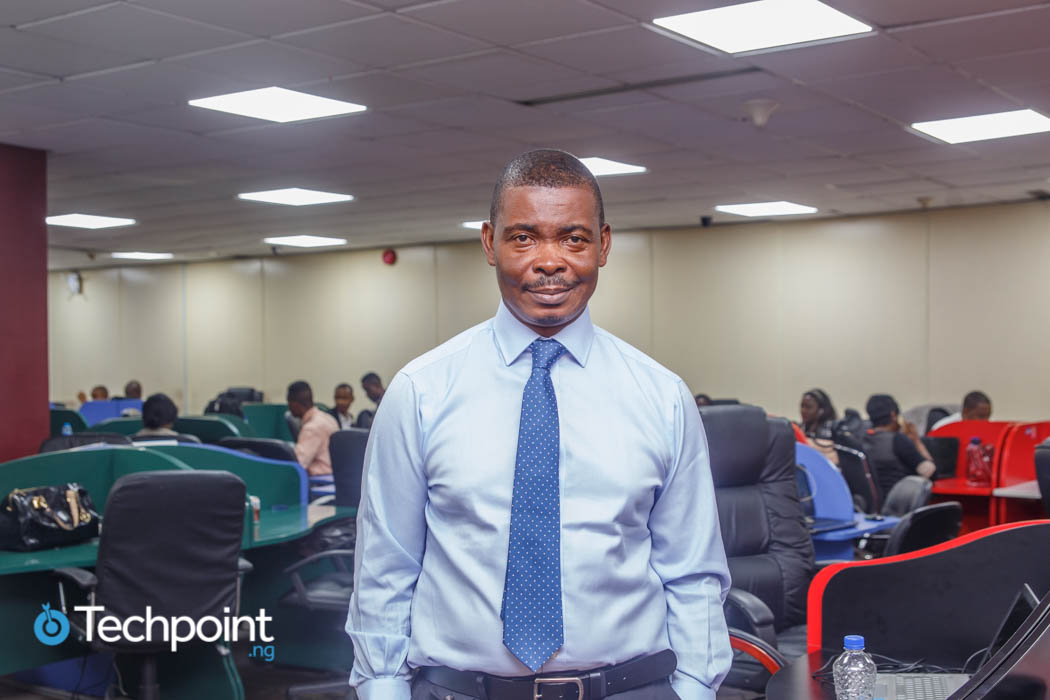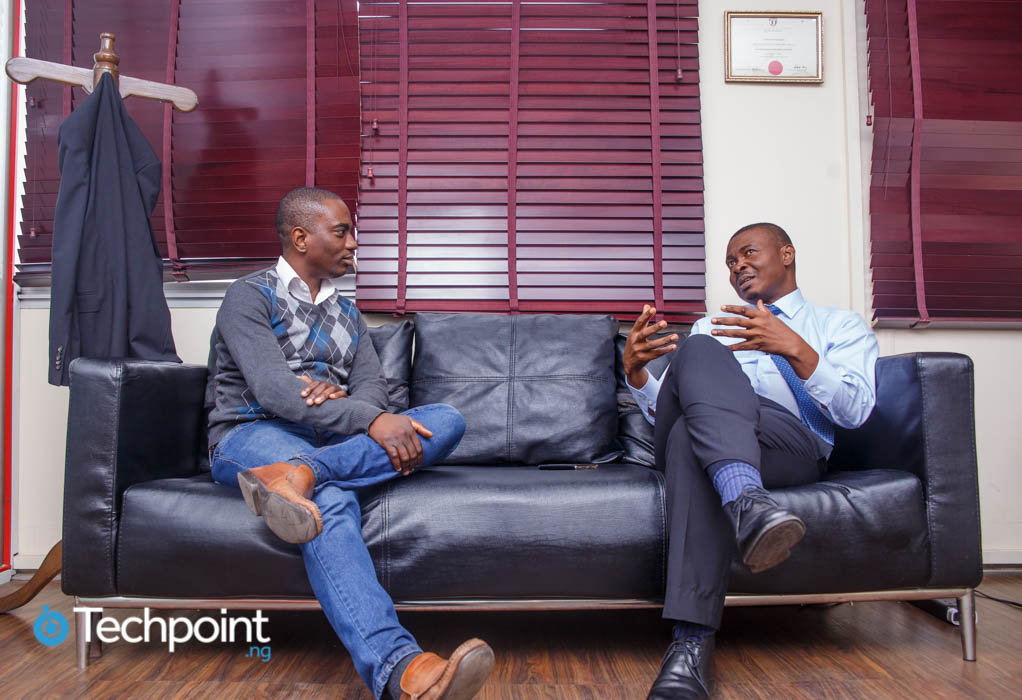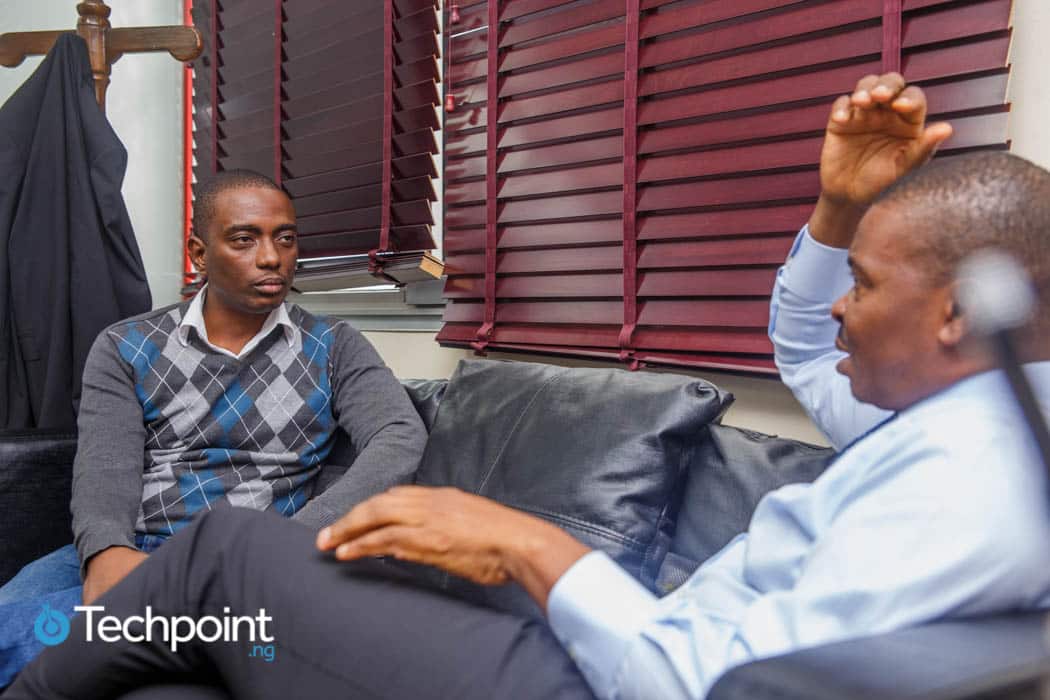Fresh from completing his mandatory youth service in Jos, Plateau state, Collins Onuegbu decided it was in his best interest to relocate to Surulere, Lagos which he considers the hub of the tech industry at the time.
“I decided I was going to be in the tech industry since I had a degree in electronics engineering”, Collins told me during a recent chat. “I completed my youth service on a Friday, flew to Lagos for an interview on Monday, got the job and then flew back to Jos to collect my things so I could start work”, he recalls.

This was in the late 1980s. Soon enough, Collins moved on to join Inlaks Computers, where he continually rose through the ranks, over the next six years, before he decided he had learnt enough to start his own company.
That company is Signal Alliance, an enterprise IT service provider and end-to-end system integrator that he has run for over 20 years.
Collins Onuegbu sat with me recently, at his Marina, Lagos office, to share his thoughts on business and entrepreneurship within the tech space.
Muyiwa Matuluko of Techpoint: I went through your LinkedIn profile and the first thing I noticed is that you seem to have quite a passion for education.
Collins Onuegbu of Signal Alliance: You have to keep educating yourself, especially if you are in an industry like ours where transition always happens after a few years. I should add that I also went to the University of Lagos for an MBA but I dropped out at a point.
MM: Why did you drop out?
CO: I enrolled for the MBA around the time I started Signal Alliance. After the first year, the excitement waned and I didn’t think that I was making much progress. Not that the programme was not useful, it was. I mean, if I was going for another job, it would have been very nice to finish it. But I didn’t feel I needed to pay for a certificate to work in my own company.
MM: Seeing as you’ve been on both sides, how would you weigh in on the debate over whether it is advisable to pursue an MBA before or after starting a business?
CO: If you want to start a business at any point in time, you should start. However, even some of the most successful entrepreneurs who don’t have an MBA end up employing MBAs.
So having an MBA does give you some form of advantage because it teaches you how a company is structured. A lot of companies have failed because entrepreneurs don’t know how a company is structured.
MM: You started Signal Alliance barely six years after working experience, at a time when the tech industry was quite nascent. What gave you the conviction that it was the right time to start?
CO: The question is why it even took that long. Because right from the university, I and a few of my friends were already running a business. If it was now, or if we were in Lagos, we would have gone straight into building our company right out of university.
Read: 8 prominent Nigerian startups that started from the university
Of the four of us that started that business, three have gone on to found their own companies. So I always knew that at some point I would run something on my own. It was just a matter of when. I think I took that decision when I thought I had learnt all I needed. When I look back now, I can’t honestly say I knew it was the right time.
MM: How easy was it starting out? Specifically, how did you get funding and what other challenges did you have to surmount?
CO: The environment then was a little different from now. If you wanted to setup a company in 1996, you wouldn’t even think about raising money to scale. I mean, there has always been informal funding from friends and family but raising formal startup money was not an option then.
To answer your question, I had some savings. I also had prospective customers waiting as I was leaving where I worked. Some of these prospects became businesses. They were our primary source of funding.
I remember when we started, our office didn’t have a sign board. The first customer came to us the week we moved in and, to identify, we had to hang a temporary signboard on the wall of the compound until they left.
But there were a lot of other difficulties. For example, we couldn’t get a telephone line in Surulere. It was one of the most difficult things then. This is something no one can think of as a problem right now but in those days, it was almost like the challenge we have with power now. I hope that 20 years down the line, it’s not the kind of problem we’ll still be talking about.
MM: Still on the matter of funding, you recently launched Sasware — the seed investment arm of Signal Alliance. How many startups has Sasware invested in so far and what are you normally looking for?
CO: We started with a target of about 10 companies by the end of this year. We are hoping to meet that target. Some of these investments are done as part of the Lagos Angel Network (LAN).
While we are primarily on the lookout for companies that will help us extend the enterprise space we play in, our investments with LAN are more diversified — even outside IT — to enable us observe what is happening on the other side.
Essentially, we are looking for companies that have good entrepreneurs running them. Most of the time, these are people trying to solve real problems that consumers are willing to, and are, pay(ing) for. Not all ideas have that capacity, despite the best intentions of the founders.
MM: In your experience interfacing with many young Nigerian startup founders, what are the most common mistakes you observe and how would you advise against them?
CO: First, I should say that I think we have smarter people starting tech businesses now. They also have better resources and a more favourable environment than we did.
However, the space is also more competitive right now because the internet has democratised everything, including information. So there’s hardly anything you’re starting now that someone hasn’t thought about. Yet, I see quite a number of startup founders demanding that you sign an NDA before they pitch to you.
Think about all the local businesses that have made money. Is it eCommerce? eCommerce didn’t start here. Even the guys who started eCommerce in America only added an “e” to existing commerce. Don’t ever make the assumption that your idea is exclusive to you.
The second thing that I think is important is we need to be very careful that we do not build a culture of starting up to raise money. Too many startup founders are getting into too many competitions to raise money. They think winning competitions is the same as building your business. But they actually need to spend a lot of time building the business. That’s the most important thing.
I think defining the reason you are raising money is important, especially at the early stage. The kind of money you should be looking for is the smarter and patient kind. Funding is supposed to give you some legroom to operate your business and then bring in the people who can help you to grow the business.
I think it’s important not to be desperate to raise money because other people are doing so. Money can help you scale your business but if it’s not a very good idea and you don’t have the capacity to execute, it will still die anyway
Finally, tech founders should learn to separate the business from their tech background. Even in the medical profession, a lot of great doctors don’t make good hospital owners. Which is why you have a lot of mom-and-pop hospitals not doing too well. It’s the same thing in tech.
If you are a tech person, it will be wrong to feel entitled that when you get into the business you are going to succeed. Why I enrolled for an MBA when I started my company was basically to help me evolve faraway from the tech space because you need business knowledge to run a business. Luckily for us these days, incubation programmes are helping in this regard.
I think it’s important you understand that once you put “entrepreneur” in your title, your job has moved from being a coder or a programmer to being the chief salesman, chief accountant and chief recruiter, among other roles.
Those skills don’t come from coding. Tech founders need to make this transition faster or team up with people that have diverse disciplines as co-founders.


















